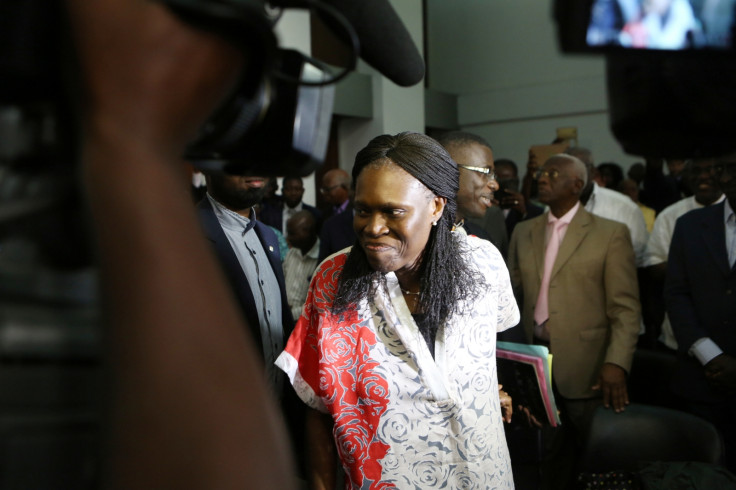Ivory Coast's Simone Gbagbo cleared of war crimes – ICC now only 'chance for victims to get justice'
The former first lady was acquitted in Ivory Coast after a botched crimes against humanity trial.

The acquittal in Ivory Coast of former Ivorian first lady Simone Gbagbo for crimes against humanity following a botched trial has highlighted the importance of the International Criminal Court (ICC)'s case against her, a prominent rights group has said.
Gbagbo, who has been in Ivorian custody since April 2011, has also been indicted by the ICC for crimes against humanity, but Ivory Coast has refused to transfer her to the Hague court in violation of its legal obligation under the ICC founding Rome Statute.
Gbagbo is already serving a 20-year sentence for "endangering state security" and was on trial on charges on war crimes and crimes against humanity for her alleged role in the 2010 post-electoral violence.
Her husband's refusal to cede office to Alassane Ouattara in November 2010 degenerated into political violence and eventually a resumption of armed conflict that claimed at least 3,000 lives between December 2010 and May 2011, according to UN estimates.
During the unrest over 150 women were raped or gang-raped, people faced summary executions and villages were burned down.
Laurent Gbagbo, is currently on trial at the ICC with a close ally, Charles Blé Goudé, for crimes against humanity.
Her crimes against humanity trial was marred by fair trial concerns and a critical lack of evidence and on 28 March, Côte d'Ivoire's high court acquitting Gbagbo - nicknamed the Ivorian Iron Lady during her husband's time in power.
"The acquittal by Côte d'Ivoire's high court of Simone Gbagbo for crimes against humanity reflects the many irregularities in the process against her, and leaves unanswered serious questions about her alleged role in brutal crimes committed during the 2011 post-election crisis," said Param-Preet Singh, associate international justice director at Human Rights Watch (HRW).
"The poor quality of the investigation and weak evidence presented in her trial underscore the importance of the ICC's outstanding case against her for similar crimes, not least as an opportunity for victims of her alleged crimes to obtain justice."
In a trial that was at times been quite extravagant, Gbagbo's lawyers withdrew in November 2016, in protest at the Abidjan court's failure to call several high-profile witnesses they considered key to Gbagbo's defence. The court appointed Gbagbo new lawyers, who also withdrew from the trial on 15 March.
In May 2016, when the trial began, a group of human rights organisations representing hundreds of victims also announced they would not participate in the trial, objecting to everything being pinned on Gbagbo alone, when, they claimed, there were others equally responsible for the atrocities that should have stood trial with her.
During the stymied trial, observers also criticised the lack of evidence presented by the prosecution to justify Gbagbo's conviction.
HRW believes that Gbagbo's acquittal, as well as the ongoing ICC trial of her husband, "highlights the failure to hold pro-Ouattara commanders to account". Although a number of high-level commanders from pro-Ouattara forces have been indicted, none of these cases have moved forward to trial and several of the indicted remain in senior positions in the Ivorian armed forces.
"The absence of any domestic trials of pro-Ouattara commanders for the devastating abuses during the post-election crisis sheds doubt on Côte d'Ivoire's commitment to impartial justice," Singh said.
The ICC is also investigating crimes by pro-Ouattara commanders, but has yet to issue arrest warrants.
"The ICC's ongoing investigation into crimes committed by the Ouattara side remains essential so that those most responsible do not escape the reach of justice."
President Ouattara, who was elected in a landslide win in October 2015, has repeatedly said that all those responsible for human rights violations will be brought to justice, no matter their political affiliation.
© Copyright IBTimes 2025. All rights reserved.






















